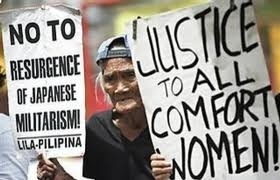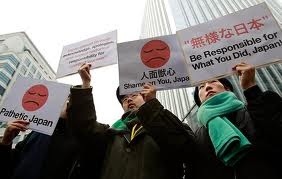
Woman’s news network
(WNN) Toronto, Ontario, CANADA:
It was 4 years ago in Shanghai, China when I first met a survivor of sexual slavery and forced prostitution. Her name was Ms. Ha, a Korean who never returned home after the war. And she didn’t fit any stereotype I could have imagined.
At 83 and only 4’8” she was roughly the same age as my Grandmother. To hear firsthand from a survivor that endured the torture of being dragged from their hometown at the age of 13 and forced to have sex with many soldiers a day during World War II was like drowning. Nothing could have possibly prepared me for learning about the ‘comfort women,’ which is a problematic term used to describe over 200,000 girls enslaved during World War II in Asia.
How was any of this possible?
And how hard must it have been for these Grandmother’s to hide this reality from so many people for such a long time? I didn’t have the answers to these questions, but I knew I couldn’t go home without finding out more. So I packed my bags and against the will of my family, spent the next 2 months on a solo mission meeting over 25 survivors. It was an experience that forever changed my life.
When I finally returned from home, to my surprise no one could understand what I had just witnessed.
I was frustrated and upset. It reminded me about how my parents never talked to me about the human rights abuses and crimes against humanity at the Nanjing Massacre in China. That’s when I knew I had to make a documentary film about the inspiring grandmother’s I had met and the enlightening reflections they have to share with people around the world.
Over the past 4 years of making this film, I had the unique opportunity to meet over 45 survivors in China, the Philippines, South Korea, and Taiwan. Often traveling to remote villages and islands, I have been invited into humble homes in order to gain a deeper understanding in the human rights voice of these grandmothers and explore how to best share their stories.
Along the way, I learned that these courageous women have invaluable lesson to share with people, regardless of their gender, age, or background. What they’ve endured and continue to face is a unimaginable shame and silence that imprisons victims of military violence.
Many people believe this issue and the Grandmother’s stories belong in the past, but I beg to differ!
I have spoken to thousands of students and audience members across North America and Asia. Through this, I have seen how moved they are to learn directly from the Grandmother’s stories and messages I have been able to bring back to them. As I work towards completing my film documentary ‘Within Every Woman’, I have realized the importance of being more connected with those that came before us, as well as those who are still here with us.
With this new gift of wisdom that the Grandmother’s have shared with me, I hope too, to inspire others to re-imagine the relationships we have with our elders.



